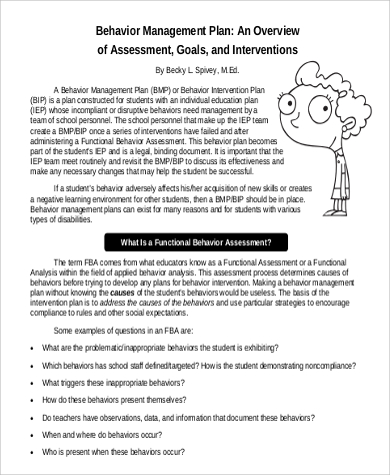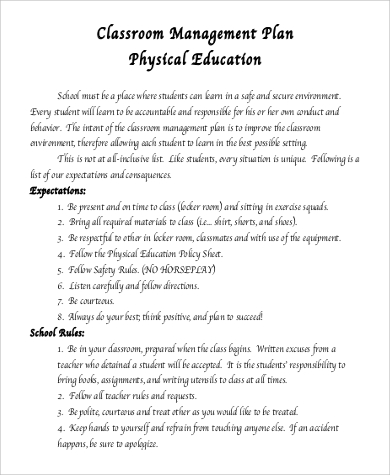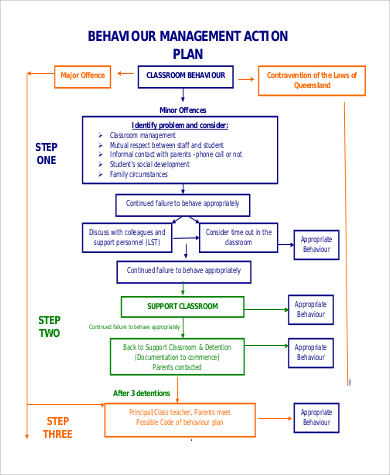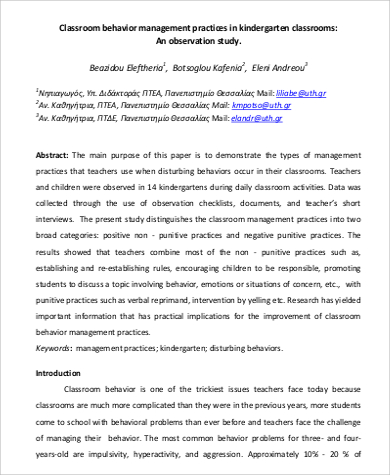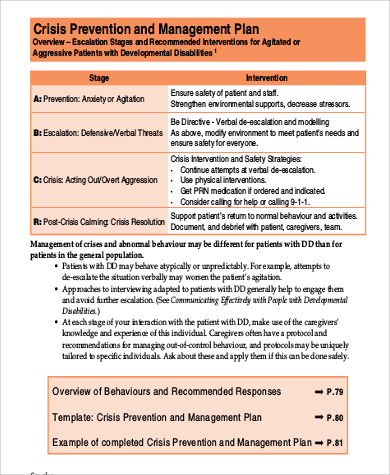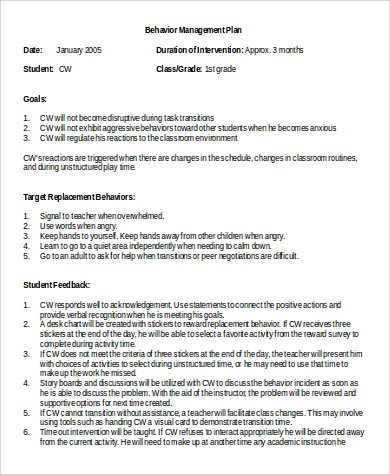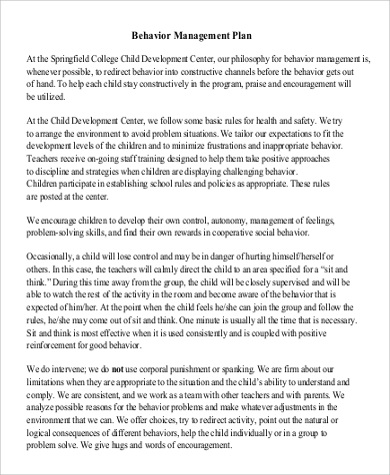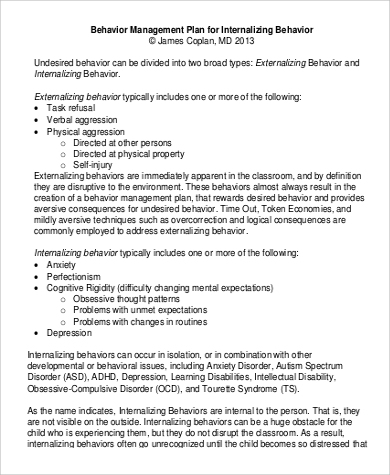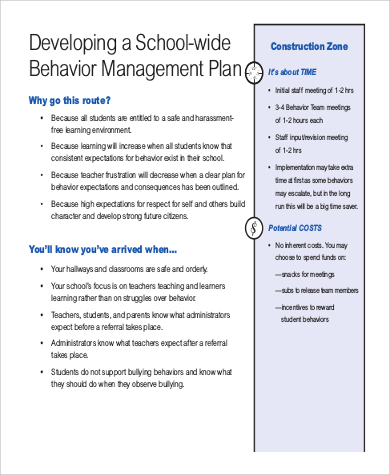Behavior management is a counseling process that teaches or guides people that needs behavioral correction. This usually applies to people who have self-destructive tendencies, usually affecting their environment. Counselors and psychologists are the ones who will conduct the procedure. This can be held in a school guidance counsel or in a psychiatric clinic.
How Behavior Management Can Be Helpful
While it identifies the negative behavior and its causes, it also raises awareness on alternative behaviors and walking them through the path of change. The person who undergoes such procedure will experience painful psychological healing, but the experience will totally be liberating, making the client change totally.
The Process
Filling the Form
Before the procedure starts, the clients are usually asked to fill out a form or Sample Plans form with their personal data. The information acquired will be used for their profiling.
Interview
After a client provided the form and profile, they will then start with their very first session. At first, the psychiatrist or counselor (conductor) will ask simple questions such as the following:
- How’s your day?
- Are you doing well?
- How are you feeling?
Sample Behavior Assessment Management Plan
Behavior Classroom Management Plan
Behavior Management Action Plan in PDF
Kindergarten Behavior Management Plan
Behavior Crisis Management Plan Example
Behavior Management Plan in Word
And when the patient starts responding, the conductor will start getting information from it and starts studying the client’s behavior.
Behavioral Study
Once the conductor gathered some information on the first session, they will start assessing the answers and studying it. Depending on the response of the patient, the more response they get, the easier for them to continue with the next step. For extremely disturbed individuals, it’s very rare to get a lot of information as they feel uncomfortable opening up for the first time.
Follow-Up Checkup
This is the second time the client visits the psychiatrist or counselor. The conductor will check out their clients with the same process as the first one. Usually, the second visit gives the client a different behavior or mood, it could be for the better or worse. Depending on the client’s response, the conductor will proceed with the next process asking them things like,
- “Can you please tell me why you are feeling the way you do right now?”
- “What seems to bother you? Mind elaborating it? I might be able to help you with that.”
- “Did something bother you? Can I help you?”
If the client opens up and gives more detailed responses, then that’s the time the conductor will go through the behavioral and psychological analysis.
The Long-Term Healing Process
After the conductor gained more information about the client and assessing them thoroughly, that’s the time they identify the problem and start working on it. They usually give a series of exercise and then they list down the client’s responses on a Performance Improvement Plan Examples to track down the improvement of the client’s behavior. This usually goes on until the client is totally transformed.
Standard Behavior Management Plan
Behavior Management Plan in PDF
Sample School Wide Behavior Management Plan
Aside from the guidance counselors and psychiatrists, teachers can also act as counselors to their students. It usually starts with them, especially when there are school fights within the classroom’s premises. If you are a teacher who wants to organize your classroom activities, you can also try this Classroom Management Plans.
Related Posts
FREE 7+ Fashion Business Plan Samples in PDF
FREE 10+ Sprint Planning Samples In MS Word | Google Docs | PDF
FREE 10+ Wedding Planning Samples in MS Word | Apple Pages | Powerpoint | PDF
FREE 9+ Monthly Study Planner Samples in PSD | Illustrator | InDesign | PDF
FREE 9+ Sample Curriculum Planning Templates in PDF | MS Word
FREE 10+ Teacher Development Plan Samples in MS Word | Google Docs | Apple Pages | PDF
FREE 10+ Basketball Practice Plan Samples in PDF
FREE 12+ School Business Plan Samples in PDF | MS Word | Apple Pages | Google Docs
FREE 7+ Client Strategic Plan Samples in PDF | MS Word
FREE 11+ Trucking Business Plan Templates in PDF | MS Word | Google Docs | Pages
FREE 7+ Small Hotel Business Plan Samples PDF | MS Word | Apple Pages | Google Docs
FREE 14+ Bakery Business Plans in MS Word | PDF | Google Docs | Pages
FREE 4+ Yearly Lesson Plan Samples in PDF
FREE 50+ Strategic Planning Samples in Google Docs | Pages | PDF | MS Word
FREE 10+ Construction Project Plan Samples in MS Word | Google Docs | Apple Pages | PDF
